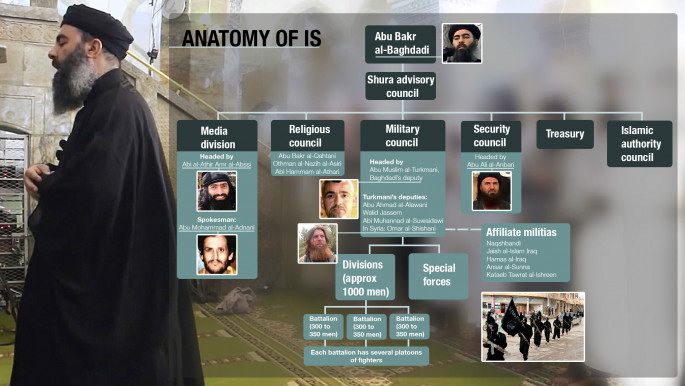French-Russian summit dominated by terrorism
The French leader already has the support of Britain, whose Prime Minister David Cameron set out his case on Thursday for airstrikes against the Islamic State group in Syria, telling lawmakers that his country could not "sub-contract" its security to allies.
"We have to deny a safe haven for ISIL in Syria. The longer ISIL is allowed to grow in Syria, the greater the threat it will pose," Cameron wrote in a letter to MPs ahead of a speech to parliament, using an alternative name for the Islamic State group.
| Read more: Britain's Cameron says UK must attack IS in Syria |
Hollande has so far won few concrete pledges during a whirlwind diplomatic tour seeking to intensify efforts to crush IS in Iraq and Syria, and his bid has further complicated by a spat between Russia and Turkey over a downed jet.
Before heading to Moscow, Hollande met Italian Prime Minister Matteo Renzi in Paris, who offered only vague support for "a coalition of greater and greater strength that is up to the task of... the destruction of Daesh", using another name for IS.
Renzi warned that Libya could be the "next emergency" and said a solution was urgently needed to its political crisis, which has fuelled the growth of an IS affiliate close to Europe's southern border.
France last week invoked a clause requiring EU member states to provide military assistance after the 13 November attacks by IS in Paris that claimed 130 lives.
German Chancellor Angela Merkel on Wednesday pledged to stand beside France after talks with Hollande, saying she would act "swiftly" to see how her country can help.
In Berlin, Defence Minister Ursula von der Leyen said Germany would send 650 soldiers to Mali to provide some relief to French forces fighting extremists there.
Cameron travelled to Paris on Monday and offered France the use of a British air base in Cyprus for flying missions against the extremists.
But Hollande received a cooler response from US President Barack Obama when he flew to Washington on Tuesday, with the US reluctant to intensify military action in Syria without a clear strategy or political track in place.
 |
|
No 'articulate apology'
|
|||
Hollande's diplomatic efforts suffered a blow after Turkey shot down a Russian jet on Tuesday.
Turkey's military said the following day it did not know the jet was Russian and that it was ready for "all kinds of cooperation" with Russia, after Moscow called the incident a "planned provocation".
The sole surviving pilot said he received no warning and the aircraft did not violate Turkish air space, but the Turkish military released audio recordings claiming to show the Russian jet was repeatedly warned to change course.
"We still have not heard any articulate apologies from Turkey's highest political level nor any proposals to compensate for the harm and damage," Putin told Russian TV on Thursday.
Moscow has intensified its strikes in Syria after IS claimed it brought down a Russian passenger plane over Egypt last month, killing all 224 people on board.
Russia carried out heavy raids in Syria's northern Latakia province on Wednesday, the Syrian Observatory for Human Rights monitoring group said, in the same area where Turkey downed the Russian bomber.
Ankara and Moscow have backed opposing forces in the four-year Syrian conflict, with Turkey supporting rebel groups opposed to President Bashar al-Assad, while Russia is one of his last remaining allies.
Russian Foreign Minister Sergei Lavrov has backed the French president's proposal to close off the Syria-Turkey border, considered the main crossing point for foreign fighters seeking to join IS.
"I think this is a good proposal and tomorrow President Hollande will talk to us in greater detail about it. We would be ready to seriously consider the necessary measures for this," Lavrov said.
French jets on Monday launched their first airstrikes from the Charles de Gaulle aircraft carrier in the eastern Mediterranean.
On Wednesday, Prime Minister Manuel Valls told parliament, which overwhelmingly supported intensifying the air campaign against IS, that "there is no alternative, we must annihilate Daesh".
Meanwhile, the manhunt continued for two fugitives accused of taking part in the Paris attacks: Belgian-born Frenchman Salah Abdeslam and Belgian-Moroccan Mohamed Abrini.





 Follow the Middle East's top stories in English at The New Arab on Google News
Follow the Middle East's top stories in English at The New Arab on Google News
![The UAE is widely suspected of arming the RSF militia [Getty]](/sites/default/files/styles/image_330x185/public/2024-11/GettyImages-472529908.jpg?h=69f2b9d0&itok=Yauw3YTG)
![Netanyahu furiously denounced the ICC [Getty]](/sites/default/files/styles/image_330x185/public/2024-11/GettyImages-2169352575.jpg?h=199d8c1f&itok=-vRiruf5)
![Both Hamas and the Palestinian Authority welcomed the ICC arrest warrants [Getty]](/sites/default/files/styles/image_330x185/public/2024-11/GettyImages-2178351173.jpg?h=199d8c1f&itok=TV858iVg)